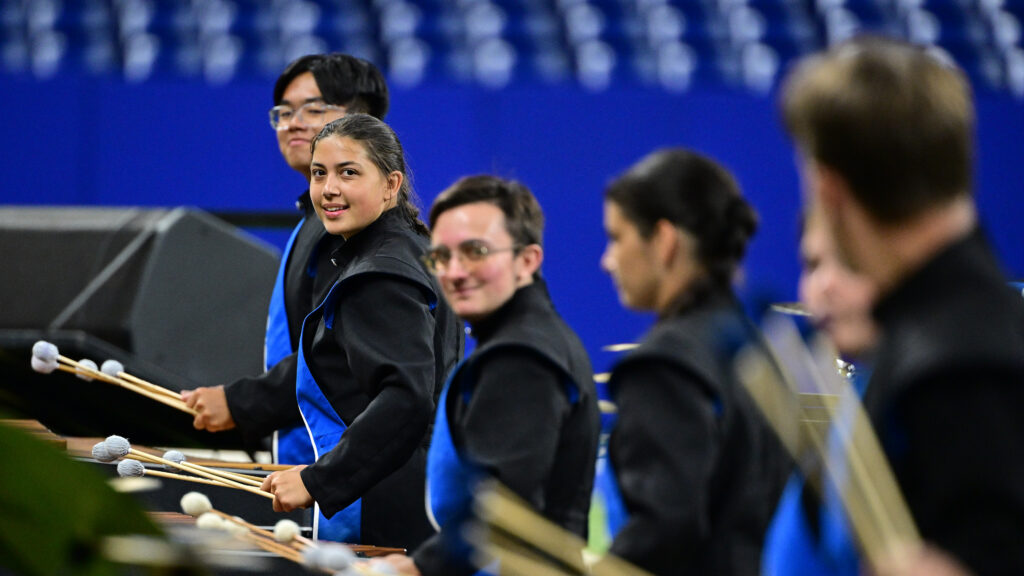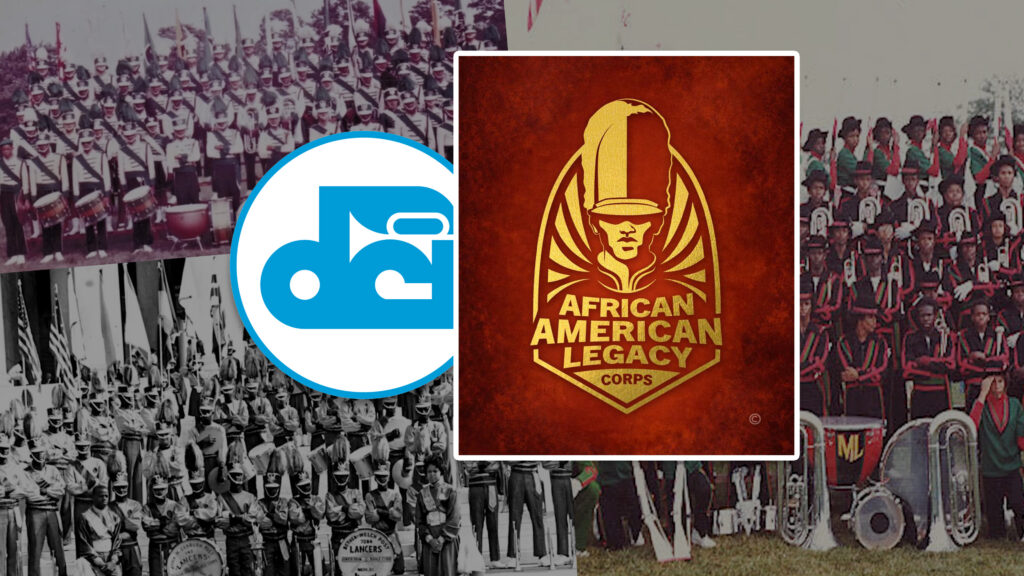Dave Richards was never shy about sharing his opinion.
You knew that when he was in the press box judging General Effect Brass at a Drum Corps International event, that you would get lively commentary. The “emotional connection” criteria of the caption was always front and center in his critiques of corps’ performances.
“Dave Richards represented the ‘gold standard’ of character in our activity,” DCI Hall of Fame member James Elvord said. “From the beginning of DCI he was always there to assist, teach and encourage others with his million dollar smile and operatic quality baritone voice. Once you met Dave, you never forgot him.”
Richards, who is one of the last surviving adjudicators of the inaugural DCI Championship judging panel in 1972, died early Sunday morning in Menomonee Falls, Wisconsin, after a number of years of declining health. DCI Hall of Fame member Gene Monterastelli reported his passing.

Richards’ life in drum corps began in the 1950s as a member of the Milwaukee Militaires. After his marching days, he instructed numerous corps, including the Boys of ’76, St. Patrick Imperials, Des Plaines Vanguard, Starlites, Yankee Rebels, Spectacle City Mariners, Racine Scouts and Madison Scouts. And then he became a judge.
Part of that Midwest group that formed the backbone of the early DCI judging structure, Richards worked the first DCI Championship in Whitewater, Wisconsin in 1972. In fact, he judged both Prelims and Finals that inaugural year and was a regular part of the DCI judging community until 1986.
Richards’ “real job” was with the U.S. Postal Service, which led to an interesting nickname.
“He would sing phrases at judge critiques and while we were together,” fellow judge and DCI Hall of Fame member George Oliviero recalled. “We would call him ‘The Singing Postman’ — Always in his rich tone and always true to what we were hearing on the field.”
“Dave always directly told you what he was thinking, and he left the sugar off the table,” Oliviero continued. “That honest opinion could be startling, but it always came from that giant heart of his.”
“During our surprising season of 1975, the surging Squires lit up the DCI Prelims in Philadelphia early on a Saturday morning,” said DCI Hall of Fame chair Steve Rondinaro who managed the New York corps from 1975 to 1979. “We hit a new gear and Dave enthusiastically went along for the ride. His General Effect Brass tape was one for the ages as he turned to fellow judge Shirlee Whitcomb and exclaimed, ‘They’re not the little kids from Watkins Glen today!’ We narrowly missed Finals with a 13th-place finish, but that Dave Richards tape served as a glowing testament to how far we had come.”
Richards’ recorded judge commentary of the Troopers’ performance at the 1979 DCI World Championship Prelims in Birmingham, Alabama is another one fondly remembered.

After falling out of the Top 12 finalists in 1976 and finishing 20th place in 1977 and 1978, the Casper, Wyoming-based corps eyed a comeback in 1979. However, after finishing 14th place at the DCI Midwest Championship Prelims in Whitewater, Wisconsin several weeks earlier, the corps increasingly looked to be a long shot to climb back into Finals.
That is until they marched onto Legion Field in Birmingham.
The late DCI columnist Michael Boo recalled the performance as one of his “most incredible Drum Corps International memories.”
“When the corps hit the ‘sunburst’ drill formation, everyone around me stood up in a manner I had never witnessed before,” Boo wrote. “Hooting and hollering, they were showing their gratitude for what all now realized was a performance that would rewrite the definition of ‘overachieving.’ The faces of many of the fans in the stands were welled up with tears … The performance touched our hearts and our souls. Truly, we had just witnessed a performance that literally came out of nowhere.”
Richards, who was in the press box to judge General Effect Brass, was on the same page as the audience. He awarded the Troopers a fifth-place mark of 9.3 out of 10 in his caption, much higher than they had received at any other contest that summer. His score helped them advance to the Finals just 0.2 points over the 13th-place Crossmen.
“I also welled up as Troopers concluded that unbelievable performance,” Richards recalled in a 2005 DCI.org interview. “My rationale for the score I gave them — 9.3 after receiving scores in the low 8s and high 7s all year long — was that tears were worth a 9 and that my only concern after that was how many tenths more was I going. Not that a single judge could change an outcome, but I represented a certain breed of adjudicator that not only recognized achievement but also rewarded it.”
“You wouldn’t believe the amount of harassment I took for the number I gave them,” Richards added. “My only comeback was, ‘Were you there?’ The usual response was ‘no.’”
According to current Troopers executive director Mike Gough, Richards’ judge tape has often been played to inspire corps members even decades later. The documentary “Hell Bent for Victory,” which chronicled the Troopers’ milestone 2009 season, captured one of these moments.
“We used to play that tape to the corps all the time,” Gough said. “Last time was in 2022 in Allentown just before we shot back into the 12th-place slot. That tape is a thing of legend and has inspired generations of Troopers.”
Richards was elected to the DCI Hall of Fame in 1996 and was an active member, nominating and endorsing new candidates regularly. Earlier this year, he spearheaded the nomination of Mike Duffy, who learned he would be inducted as part of the Class of 2024 just weeks before his passing.
The late DCI Hall of Fame member Col. Truman Crawford summed up Richards well in support of his 1996 nomination.
“The greatest compliment I can pay is to state that I’ve never found (Dave) to be anything but totally dedicated — totally committed,” Crawford said. “(He was) committed to those he instructed, judged, and most importantly, to sustaining the proud traditions of this magnificent activity.”





